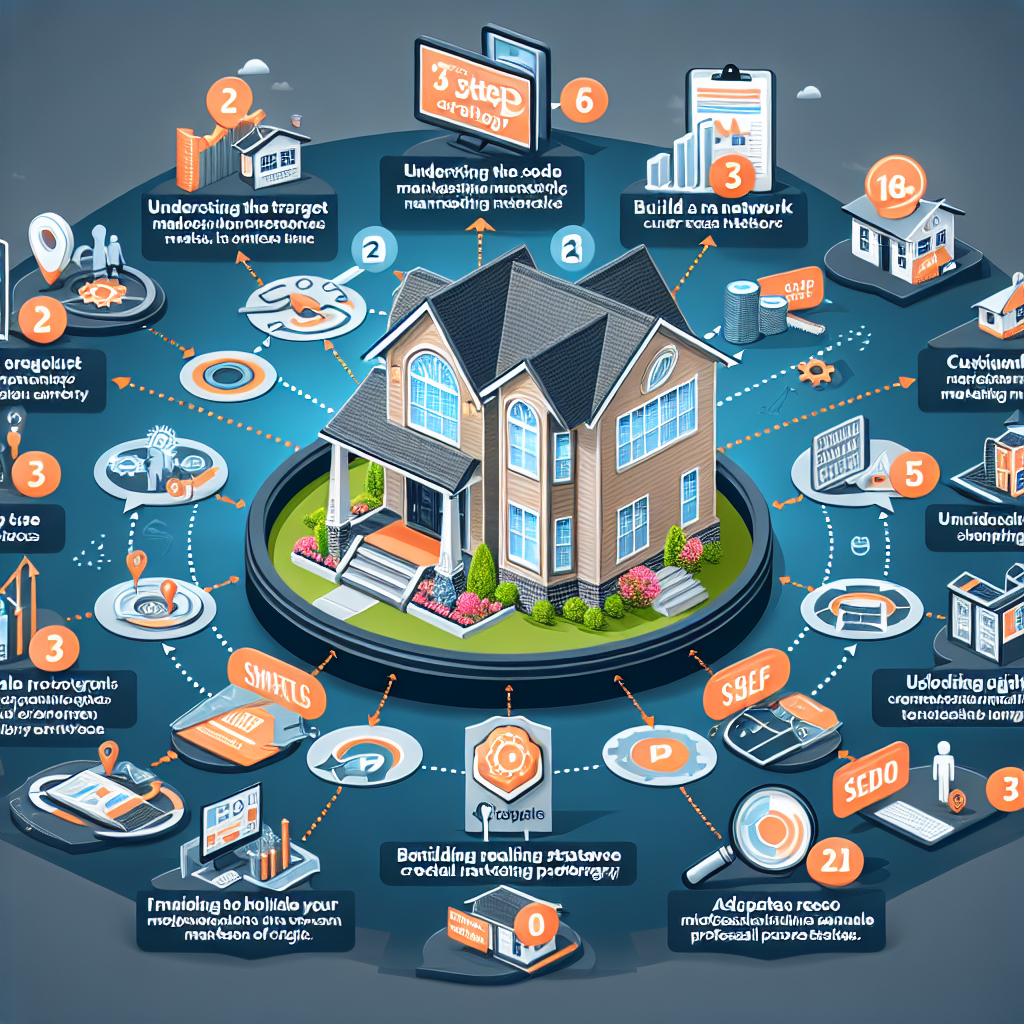Develop Your Real Estate Marketing Strategy in 12 Steps (Includes Template)
In the competitive world of real estate, having a robust marketing strategy is crucial for success. Whether you’re a seasoned agent or just starting, a well-crafted plan can help you stand out in a crowded market. This article will guide you through 12 essential steps to develop an effective real estate marketing strategy, complete with a template to get you started.
1. Define Your Target Audience
Understanding your target audience is the foundation of any marketing strategy. Identify the demographics, preferences, and needs of your ideal clients. Are you targeting first-time homebuyers, luxury property seekers, or commercial investors? Tailor your marketing efforts to resonate with these specific groups.
2. Set Clear Goals
Establishing clear, measurable goals is essential for tracking your progress. Consider objectives such as increasing website traffic, generating more leads, or closing a certain number of sales. Use the SMART criteria (Specific, Measurable, Achievable, Relevant, Time-bound) to define your goals.
3. Analyze Your Competition
Conduct a competitive analysis to understand what other real estate professionals in your area are doing. Identify their strengths and weaknesses, and find opportunities to differentiate yourself. This insight will help you position your brand more effectively.
4. Develop Your Unique Value Proposition (UVP)
Your UVP is what sets you apart from the competition. It should clearly communicate the unique benefits and value you offer to clients. Whether it’s exceptional customer service, in-depth market knowledge, or innovative technology, make sure your UVP is front and center in your marketing materials.
5. Build a Strong Online Presence
In today’s digital age, having a strong online presence is non-negotiable. Ensure your website is user-friendly, mobile-responsive, and optimized for search engines. Regularly update your blog with valuable content to attract and engage potential clients.
6. Leverage Social Media
Social media platforms are powerful tools for reaching a wider audience. Choose the platforms that align with your target audience and consistently post engaging content. Use a mix of property listings, market updates, and personal stories to build a connection with your followers.
7. Utilize Email Marketing
Email marketing remains one of the most effective ways to nurture leads and maintain relationships with past clients. Create a monthly newsletter with market insights, new listings, and tips for buyers and sellers. Personalize your emails to increase engagement.
8. Invest in Professional Photography and Videography
High-quality visuals are crucial in real estate marketing. Invest in professional photography and videography to showcase your properties in the best light. Virtual tours and drone footage can also provide a unique perspective that attracts potential buyers.
9. Implement SEO Strategies
Search engine optimization (SEO) is key to improving your website’s visibility. Use relevant keywords, optimize meta tags, and create high-quality content to boost your search engine rankings. Local SEO is particularly important for real estate agents targeting specific geographic areas.
10. Host Open Houses and Events
Open houses and community events are excellent opportunities to connect with potential clients face-to-face. Promote these events through your online channels and local advertising to maximize attendance. Use these interactions to build relationships and gather feedback.
11. Monitor and Analyze Your Results
Regularly track the performance of your marketing efforts using analytics tools. Monitor website traffic, social media engagement, and lead conversion rates. Use this data to refine your strategy and make informed decisions about where to allocate resources.
12. Continuously Improve and Adapt
The real estate market is constantly evolving, and so should your marketing strategy. Stay informed about industry trends and be willing to adapt your approach as needed. Continuous improvement will ensure your strategy remains effective and relevant.
Real Estate Marketing Strategy Template
- Target Audience: Define your ideal clients.
- Goals: Set specific, measurable objectives.
- Competitive Analysis: Identify competitors and opportunities.
- Unique Value Proposition: Highlight what sets you apart.
- Online Presence: Optimize your website and content.
- Social Media: Engage with your audience on key platforms.
- Email Marketing: Nurture leads with personalized emails.
- Visual Content: Use professional photos and videos.
- SEO: Implement strategies to improve search rankings.
- Events: Host open houses and community gatherings.
- Analytics: Monitor and analyze your results.
- Adaptation: Continuously improve your strategy.
Conclusion
Developing a comprehensive real estate marketing strategy involves understanding your audience, setting clear goals, and leveraging various tools and platforms to reach potential clients. By following these 12 steps and using the provided template, you can create a strategy that not only enhances your brand visibility but also drives tangible results. Remember, the key to success is continuous improvement and adaptation to the ever-changing real estate landscape.



